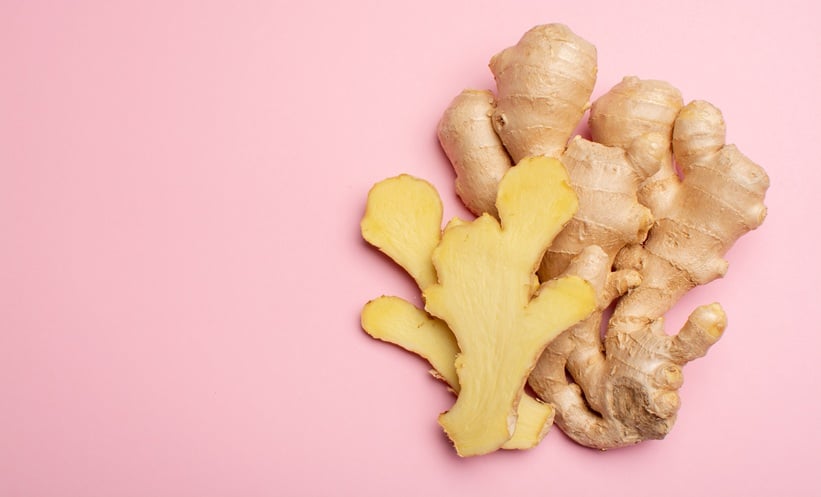Ginger and Derivatives in Multidrug-Resistant Infections
IN THIS systematic literature review, Molzahn and colleagues analyzed 22 studies exploring anti-bacterial effects of ginger and derivatives. Defined ginger extracts, essential oils, and specific molecules such as gingerol, shogaol, and zingerone inhibited growth of Gram-positive and Gram-negative bacteria, including multidrug-resistant isolates. Across models, ginger-derived molecules reduced virulence traits, notably biofilm formation, and interfered with quorum sensing, both of which are central to persistent and hard-to-treat infections.
The authors report that ginger and derivatives did more than directly suppress bacterial growth. In several experiments, adding ginger preparations to other plant-derived compounds or to synthetic antibiotics enhanced the antibacterial activity of the co-administered agents. These synergistic interactions suggest potential future roles for ginger-derived molecules as adjuncts to existing antimicrobial regimens, especially where resistance limits conventional options. The review also underscores that activity was demonstrated across a range of preparations, from complex extracts to defined constituents, which may inform future formulation strategies.
Beyond Killing Bacteria: Immune and Inflammatory Effects
The review further highlights immune-modulatory, anti-inflammatory, and anti-oxidant effects of ginger-derived molecules in vitro and in vivo. By dampening excessive inflammation while maintaining antibacterial activity, these compounds may theoretically support host defense and limit tissue damage during infection. At the same time, the current evidence base remains largely experimental, without large clinical outcome studies evaluating ginger as a stand-alone or adjunctive anti-infective treatment.
For clinicians, the findings position ginger and derivatives as promising candidates within the broader search for antibiotic-independent strategies against bacterial pathogens, including multidrug-resistant strains. At present, the data support continued preclinical and translational research rather than immediate changes to standard-of-care regimens. Nevertheless, the mechanistic breadth described in this review underscores the potential of plant-derived molecules to complement antimicrobial stewardship efforts and diversify future therapeutic options for difficult-to-treat infections.
Reference: Molzahn VA et al. Ginger and derivatives as promising antibiotics-independent options to tackle infections caused by bacterial including multi-drug resistant pathogens – A review. Eur J Microbiol Immunol (Bp). 2025;doi:10.1556/1886.2025.00069.








